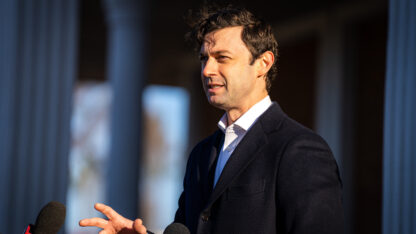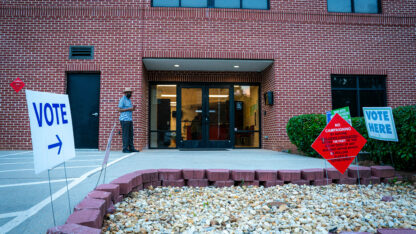Latino voters make up the second-largest voting bloc in the U.S., a key group that Vice President Kamala Harris and former President Donald Trump both need to appeal to for a better chance at winning in November.
According to data gathered by the Pew Research Center, it’s estimated that 36.2 million Latinos are eligible to vote in the 2024 presidential election. While data suggests Latino voters across the country voted for President Joe Biden by very wide margins in 2020, Trump gained support among Latino voters in 2020, earning a higher percentage of voters than he did in 2016.
As a continuation of a “Closer Look” series focusing on specific voter blocs leading up to the 2024 presidential election, show host Rose Scott talks with several guests, varying in political views, about top-of-mind issues for Latino voters in Georgia and across the nation.
First, Paola Ramos, an Emmy award-winning journalist and Telemundo News and MSNBC contributor, talks with Scott about the changing political views of Latino voters and her new book, “Defectors: The Rise of the Latino Far Right and What It Means for America.”
Then, Jerry Gonzalez, the CEO of GALEO, a nonprofit aimed at increasing Latino civic engagement, talks with Scott about the findings of a survey his organization commissioned that identifies the top issues Latino voters are concerned about this election. Mark Hugo Lopez, the director of race and ethnicity research at the Pew Research Center, also weighs in about research that spotlights how Latino voters across the nation view the upcoming presidential election.









